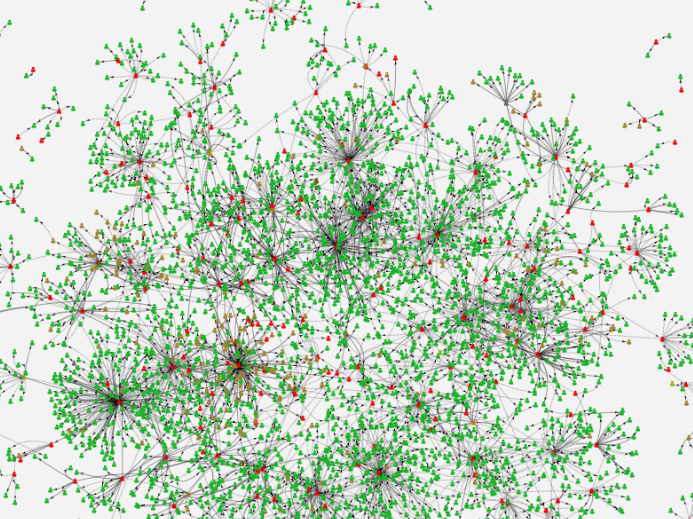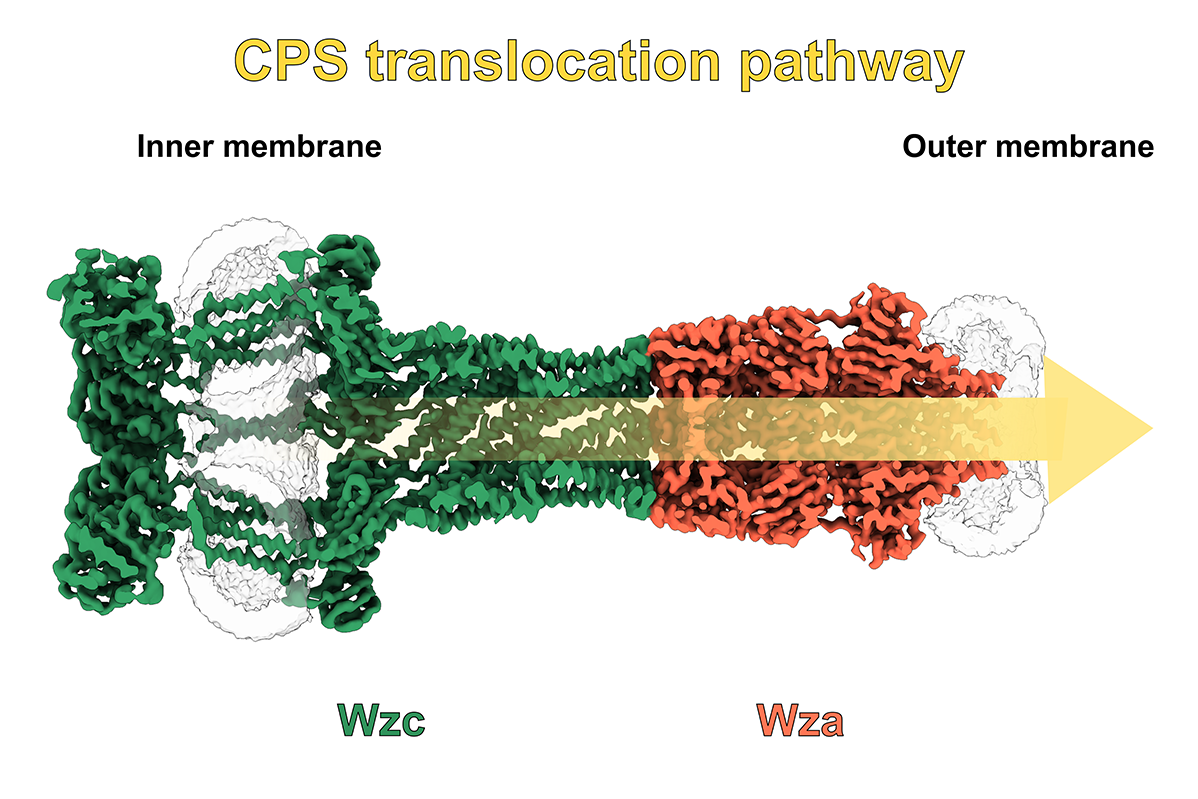
Digital Infectious Disease Surveillance

Surveillance Outbreak Response Management and Analysis System (SORMAS)
The Surveillance Outbreak Response Management and Analysis System (SORMAS) is an open-source software that started in 2015 as a research project at the Epidemiology Department of the Helmholtz Centre for Infection Research (HZI) in cooperation with Nigerian partners specifically for the control of epidemics. The system, that allows not only the routine disease surveillance but also the detection and control of outbreaks, has evolved into a fully functional tool. SORMAS has already been implemented in 11 countries in five WHO regions.
The large success of the SORMAS implementation and expansion has led to the possibility to establish a spin-off with the aim to ensure the sustainability of SORMAS. The SORMAS Foundation was established in 2022 and is now responsible for the curation of the software, support of its deployment in countries, community building and trainings. The Digital Infectious Disease Surveillance research group at HZI retains the responsibility of research into its implementation, its further development and the type of data it collects.
Currently, the team is developing a module for environmental surveillance in SORMAS and has ongoing projects to expand the implementation of SORMAS in Nepal, Cote d’Ivoire and DR Congo.
To support the use of SORMAS exported data in research as well as support the interpretation of epidemiological parameters for public health stakeholders, we developed the SORMAS Statistics (SORMAS-Stats) application for real-time estimation of epidemiological parameters (Silenou et al., 2022). We will leverage the R Shiny application (SORMAS-Stats) to develop models including those that incorporate data from the environment and animals for forecasting case incidence and outbreaks in real-time. We will also develop statistical packages and apps to permit field users to perform analyses using the developed models.
SORMAS@DEMIS
The SORMAS@DEMIS project, led by the Helmholtz Centre for Infection Research (HZI) and with the active participation of the Robert Koch Institute (RKI), aimed to develop, implement and evaluate a pilot system that significantly reduces the workload in the Public Health Service (ÖGD). For this purpose, interfaces to existing systems were developed. These included SurvNet – the reporting software developed by the RKI, the German Electronic Reporting and Information System for Infection Protection (DEMIS), and the Climedo symptom diary. The existing software solutions were adapted to the needs of the ÖGD, and the individual components were harmonized with each other. A major focus of the project was also on ensuring data protection, data security, and quality assurance. Within this project, among other things, we developed SORMAS-to-SORMAS, the first solution for public health offices to exchange reporting data without media discontinuity not only between laboratories, hospitals and the RKI, but also between counties using SORMAS. The project ended in December 2023.
Mobile Digital Preparedness and Response without Borders (DigiPREW)
The DigiPREW project is developing solutions for biological threat detection and response management in four work packages. As a digital eHealth tool, SORMAS is the technical backbone of DigiPREW. The overall goal of the project is to develop a mobile digital threat response tool and a mobile digital laboratory information and management system (LIMS) for the European Mobile Laboratory (EMLab) network. This further includes support to user training and field piloting in DR Congo. Partners in this collaborative project are the Bernhard Nocht Institute for Tropical Medicine (BNITM), the Bordeaux School of Public Health, Univ. Bordeaux (ISPED), and the Alliance for International Medical Action (ALIMA). The consortium is coordinated by the team “digital infectious disease epidemiology”.
SORMAS goes One Health: Water-based Outbreak Prediction in Peri-Urban Africa (SORMAS-WOPPA)
The partnership of this project is led by the Institute for International Animal Health/One Health of the Friedrich-Löffler-Institute (FLI), in collaboration with the Department of Epidemiology of the HZI, the Institute of Diagnostic Virology (FLI), the Institute of Epidemiology (FLI), the Institute of Pharmacy of the University of Greifswald, the Kwame Nkrumah University of Science and Technology (KNUST) and the Kumasi Centre for Collaborative Research in Tropical Medicine (KCCR).
The objectives of this project are: a) to develop a concept for the incorporation of environmental (water) signals into SORMAS for the prevention of public and veterinary health outbreaks, and b) to establish baseline data and new knowledge on the depth of microbial diversity and pathogens with epidemic potential in peri-urban Africa, and for consistent monitoring of water reservoirs.
Current infectious disease surveillance systems typically employ strategies to monitor communicable diseases at a time when these diseases are already present in a given population. While environmental water samples are already used to monitor biodiversity of terrestrial and aquatic pathogens, the data are rarely linked to veterinary and public health surveillance systems. Water samples provide an easy-to-use matrix for laboratory analysis, accumulating microbes circulating at the human-pet-wildlife interface, often before disease outbreaks are reported, and combine early detection with reliable and standardised laboratory-based testing. An automated monitoring and subsequent management of water sources in peri-urban Africa would tackle diseases before they manifest in humans or animals. Since the software has already been integrated into the national public health surveillance system in Ghana, we team up with our long-term collaborator – the KCCR at KNUST.
Surveillance Outbreak Response Management and Analysis System (SORMAS)
The Surveillance Outbreak Response Management and Analysis System (SORMAS) is an open-source software that started in 2015 as a research project at the Epidemiology Department of the Helmholtz Centre for Infection Research (HZI) in cooperation with Nigerian partners specifically for the control of epidemics. The system, that allows not only the routine disease surveillance but also the detection and control of outbreaks, has evolved into a fully functional tool. SORMAS has already been implemented in 11 countries in five WHO regions.
The large success of the SORMAS implementation and expansion has led to the possibility to establish a spin-off with the aim to ensure the sustainability of SORMAS. The SORMAS Foundation was established in 2022 and is now responsible for the curation of the software, support of its deployment in countries, community building and trainings. The Digital Infectious Disease Surveillance research group at HZI retains the responsibility of research into its implementation, its further development and the type of data it collects.
Currently, the team is developing a module for environmental surveillance in SORMAS and has ongoing projects to expand the implementation of SORMAS in Nepal, Cote d’Ivoire and DR Congo.
To support the use of SORMAS exported data in research as well as support the interpretation of epidemiological parameters for public health stakeholders, we developed the SORMAS Statistics (SORMAS-Stats) application for real-time estimation of epidemiological parameters (Silenou et al., 2022). We will leverage the R Shiny application (SORMAS-Stats) to develop models including those that incorporate data from the environment and animals for forecasting case incidence and outbreaks in real-time. We will also develop statistical packages and apps to permit field users to perform analyses using the developed models.
SORMAS@DEMIS
The SORMAS@DEMIS project, led by the Helmholtz Centre for Infection Research (HZI) and with the active participation of the Robert Koch Institute (RKI), aimed to develop, implement and evaluate a pilot system that significantly reduces the workload in the Public Health Service (ÖGD). For this purpose, interfaces to existing systems were developed. These included SurvNet – the reporting software developed by the RKI, the German Electronic Reporting and Information System for Infection Protection (DEMIS), and the Climedo symptom diary. The existing software solutions were adapted to the needs of the ÖGD, and the individual components were harmonized with each other. A major focus of the project was also on ensuring data protection, data security, and quality assurance. Within this project, among other things, we developed SORMAS-to-SORMAS, the first solution for public health offices to exchange reporting data without media discontinuity not only between laboratories, hospitals and the RKI, but also between counties using SORMAS. The project ended in December 2023.
Mobile Digital Preparedness and Response without Borders (DigiPREW)
The DigiPREW project is developing solutions for biological threat detection and response management in four work packages. As a digital eHealth tool, SORMAS is the technical backbone of DigiPREW. The overall goal of the project is to develop a mobile digital threat response tool and a mobile digital laboratory information and management system (LIMS) for the European Mobile Laboratory (EMLab) network. This further includes support to user training and field piloting in DR Congo. Partners in this collaborative project are the Bernhard Nocht Institute for Tropical Medicine (BNITM), the Bordeaux School of Public Health, Univ. Bordeaux (ISPED), and the Alliance for International Medical Action (ALIMA). The consortium is coordinated by the team “digital infectious disease epidemiology”.
SORMAS goes One Health: Water-based Outbreak Prediction in Peri-Urban Africa (SORMAS-WOPPA)
The partnership of this project is led by the Institute for International Animal Health/One Health of the Friedrich-Löffler-Institute (FLI), in collaboration with the Department of Epidemiology of the HZI, the Institute of Diagnostic Virology (FLI), the Institute of Epidemiology (FLI), the Institute of Pharmacy of the University of Greifswald, the Kwame Nkrumah University of Science and Technology (KNUST) and the Kumasi Centre for Collaborative Research in Tropical Medicine (KCCR).
The objectives of this project are: a) to develop a concept for the incorporation of environmental (water) signals into SORMAS for the prevention of public and veterinary health outbreaks, and b) to establish baseline data and new knowledge on the depth of microbial diversity and pathogens with epidemic potential in peri-urban Africa, and for consistent monitoring of water reservoirs.
Current infectious disease surveillance systems typically employ strategies to monitor communicable diseases at a time when these diseases are already present in a given population. While environmental water samples are already used to monitor biodiversity of terrestrial and aquatic pathogens, the data are rarely linked to veterinary and public health surveillance systems. Water samples provide an easy-to-use matrix for laboratory analysis, accumulating microbes circulating at the human-pet-wildlife interface, often before disease outbreaks are reported, and combine early detection with reliable and standardised laboratory-based testing. An automated monitoring and subsequent management of water sources in peri-urban Africa would tackle diseases before they manifest in humans or animals. Since the software has already been integrated into the national public health surveillance system in Ghana, we team up with our long-term collaborator – the KCCR at KNUST.
Selected Publications
Silenou, B. C., Nyirenda, J. L. Z., Zaghloul, A., Lange, B., Doerrbecker, J., Schenkel, K., & Krause, G. (2021). Availability and Suitability of Digital Health Tools in Africa for Pandemic Control: Scoping Review and Cluster Analysis. JMIR Public Health Surveill, 7(12), e30106. https://doi.org/10.2196/30106
Silenou, B. C., Tom-Aba, D., Adeoye, O., Arinze, C. C., Oyiri, F., Suleman, A. K., Yinka-Ogunleye, A., Dorrbecker, J., Ihekweazu, C., & Krause, G. (2020). Use of Surveillance Outbreak Response Management and Analysis System for Human Monkeypox Outbreak, Nigeria, 2017-2019. Emerg Infect Dis, 26(2), 345-349. https://doi.org/10.3201/eid2602.191139
Silenou, B. C., Verset, C., Kaburi, B. B., Leuci, O., Ghozzi, S., Duboudin, C., & Krause, G. (2022). A Novel Tool for Real-time Estimation of Epidemiological Parameters of Communicable Diseases Using Contact-Tracing Data: Development and Deployment. JMIR Public Health Surveill, 8(5), e34438.https://doi.org/10.2196/34438
Gupta R.K., Calderwood C.J., Yavlinsky A., .., Hauri A.M., ...,Lange B., …., Abubakar I. Discovery and validation of a personalized risk predictor for incident tuberculosis in low transmission settings. Nat Med. 2020 Dec;26(12):1941-1949. doi: 10.1038/s41591-020-1076-0.
Tom-Aba, D., Silenou, B. C., Doerrbecker, J., Fourie, C., Leitner, C., Wahnschaffe, M., Strysewske, M., Arinze, C. C., & Krause, G. (2020). The Surveillance Outbreak Response Management and Analysis System (SORMAS): Digital Health Global Goods Maturity Assessment. JMIR Public Health Surveill, 6(2), e15860. https://doi.org/10.2196/15860



